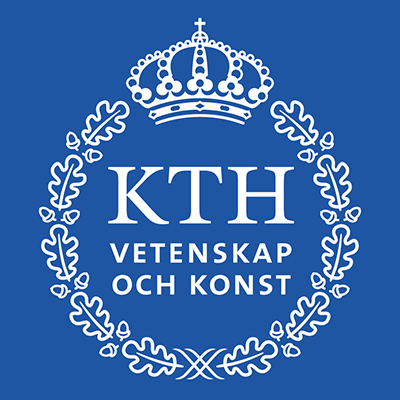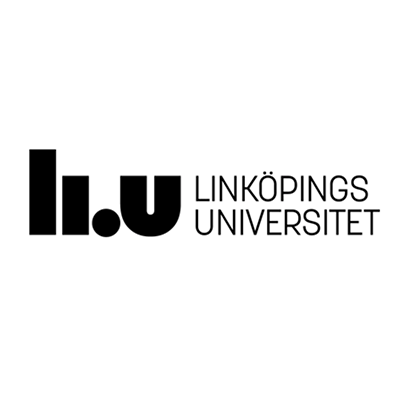Thanks TorTalk. Of course, my kids are neither lazy or stupid.
In TorTalk, we have been working with a lots successful true stories using TorTalk text-to-speech to achieve their academic goals and career. Even our founder Tor Ghai, he is a dyslexic, using TorTalk Text-To-Speech change his entire life and boost his reading performance. We are happy to help parents, teachers or any schools, if you want to help your kids, reach their full potential, not be low-self-esteem and embrace their gifts. All you need to do is to have right tool (helping program) to boost their reading performance.
75% of Universities in Sweden are using TorTalk.

Chalmers tekniska universitet

Göteborgs universitet

Kungliga tekniska högskolan

Linköpings universitet

Lunds universitet
Uppsala universitet
Göteborgs universitet
Kungliga biblioteket
Handelshögskolan i Stockholm
What is dyslexic?
- Dyslexia is a learning disability in reading. People with dyslexia have trouble reading at a good pace and without mistakes. They may also have a hard time with reading comprehension, spelling, and writing.
- Dyslexia is a learning disorder that involves difficulty reading due to problems identifying speech sounds and learning how they relate to letters and words (decoding). Also called reading disability, dyslexia affects areas of the brain that process language.
Who can diagnose “Dyslexic” ?
- Difficulty in reading, writing and spelling.
- Problems with memory, focus and organising your workload (childen may have concentration problems, or difficulty in remembering sequences such as days of the week, or the alphabet).
- Problems with understanding instructions or following directions.
- Difficulty with gross and fine motor skills (for example, catching a ball or holding a pencil; for children getting dressed, or tying shoelaces).
- Operating below your potential at school or uni, with no obvious explanation.
- Dyslexia often runs in families, so think if you have a history of poor readers, spellers or writers in the family.
- Difficulty with numeracy.
Magnus Olsson's story
The father of two daughters
I have two daughters, the eldest was diagnosed as a dyslexic when she was 9 years old and recently we discovered that also my youngest has reading difficulties.
As a father I early sensed my girls didn´t like reading and that spelling and studying was challenging for them. I went online to search for digital tools to help my daughters. My eldest started using a computer when she was 9 years old. I am very open with her reading disability and have always cooperated with the school. We have got a lot of help from the teachers. My daughters get to meet a speech therapist twice a week and they don’t really have any problem to catch up with the school study tempo.
From my point of view, my daughters don’t have any problem at all studying. The digital softwares of today are so helpful. One example is the tor.talk OCR function; when my daughter was young, she learned to use a touch screen to drag the OCR box over the text which she wanted to read. She is good at using the internet searching for information, finding the right videos and utilizing spelling checking tools to learn more. I would say she is independent and she is a role model for her younger sister. Both my daughters know how to learn and they don’t feel they have problems. It is like everyone has different ways to learn quickly.
If I would have any suggestions to other parents who has dyslexia kids? The top one would be to encourage them to adapt digital tools like TorTalk (text to speech) as early as they can. Parents also need to open up and co-work with the school. The last very important one is to always encourage your kids to read more, for example: after they finish a book, I have always given them some rewards. This is the best way not letting them be afraid of reading.
MariAnne Cederholm's story
A mother of two kids with dyslexia, now a teacher for grades 7-9, teaching English and Swedish as a second language.
Hej!
I am a mother of three, two of which have dyslexia.Both of the two found out about their dyslexia when they were studying at the university. It took my son almost 10 years to finish his university studies and thesis, largely because he didn’t know that he had reading difficulties and didn’t know about the tools and support that he needed and which were available to him.
I didn’t know much about dyslexia when the kids were small; at that time society as a whole lacked knowledge about it. When they were kids, they had spelling problems and disliked reading, but I just attributed this to us living abroad, with two mother tongues – Swedish and English.
After they were diagnosed with dyslexia, I was very impressed by my two kids, just as I was proud of the one without it. However, it did hurt me when I thought about how I hadn’t understood their difficulties and challenges in school. I kept giving them books, until my Josie one day gently asked me not to give her such. I wish I had been more steadfast in reading to them. I was also very impressed by Josie’s writing capacity. Her spelling was very imaginative and I still think that a person with dyslexia spells smarter than the usual. Josie spelt as it was pronounced. Now when she writes her texts, I guess with the help of tor.talk and Word, one can hardly see a spelling error anymore. She is an excellent writer today and so is her brother.
I think self-confidence is the hardest part in having dyslexia as well as the challenge to follow the school’s curriculum. The annoying truth is that both my mother and I misjudged people by their spelling, before we knew more about dyslexia. After understanding that this is not their fault, and how spelling can be corrected by using tools, I no longer judge people by their spelling. I now work in a public school. I think it is important to include more education about dyslexia and reading tools in teacher training, as well as learning about ways to spot the signs of dyslexia.
As a parent to kids with dyslexia, I’d like to share some advice. Firstly, check for dyslexia as soon as you see the signs, and make sure that your children get the proper tools. Secondly, parents should take time with them, love them, always encourage and affirm them and lift up their abilities. They are unique and wonderful! Don’t let dyslexia get the last word, that is just a small part of your kid. Read to them, enjoy literature together. If you have dyslexia yourself, listen to books together, read with your ears! Make sure they use TorTalk, a way to increase their self-confidence. We parents should also learn to use it, to help our kids adapt to using tools and to make the tools an integrated part of daily family life.
Good Luck and all the best,
MariAnne
Get TorTalk Win / Mac
1 Euro in first trial month, after only 7.9 Euro / month.
Download TorTalk in App Store
No fixation. Free trial, after only 7.9 Euro / month.
